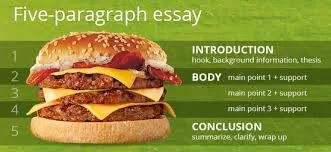Most people, including most students, are practical; they learn best when they feel they're gaining a skill that will actually be useful to them in their lives. Once convinced there's something truly useful to learn, they learn best when the skill is broken down into its component steps and taught to them one step at a time. (One phrase for this approach is Task Analysis, an approach well known to computer program designers.)
My beginning observation is obvious enough...so it's important when teaching writing to ask two fundamental questions:
what is the practical use of writing that students will want to learn?
how exactly does my approach to one-step-at-a-time writing instruction work?
A former colleague, a professor who spent years teaching writing, emailed me a complaint: "Why do you think you're so much better at teaching writing than everybody else?"
Ouch.
It's 1987. In the English department at Towson State University, there's a knock on my office door . A woman has come from Washington, D.C., looking for a colleague who never shows up. I discover that she's come to recruit my colleague to help her organization write better. It turns out she's a Ph.D. from Minnesota. Wrote her dissertation on Emily Dickinson, whom I apotheosize. Soon she asks me a question that changed my life....
I've been reading articles about a big issue: the way we teach writing in school/college is broken. Many students aren't learning to write well. Businesses are complaining loudly.
These articles suggest fixes, most often GETTING BACK TO BASICS. But in these articles, I see a glaring problem: they have a wrongheaded or outdated idea about WHAT THE BASICS ACTUALLY ARE!
Yes, as ridiculous and as boastful as this sounds, I do have a better idea. And it's fairly simple. In fact, I have a few better ideas about helping students learn to write....
Getting reviewers' comments on writing at work, for most staff, feels like a trip to the woodshed. It shouldn't. In an office, we're not in school anymore. Those who review our writing are not our teachers grading us. Writing in the workplace is a team activity. The goal is to produce the most useful documents--of all kinds--possible. So, please slaughter my writing, please!
The standard "5-Paragraph Essay" most of us have heard of or been required to do in a high school or college writing class is under attack: It's formulaic. It zaps creativity. It's too rule-based. It lacks sophistication. I'd agree that it is old fashioned. Some trace its roots to the school marms of the 19th century. Its roots, according to Matthew Nunes in his essay "The Five-Paragraph Essay: Its Evolution and Roots in Theme-Writing," trace back to the Roman and Greek rhetoricians several centuries B.C.A.
I trace its roots much further back than that, all the way to the architecture of the human mind.
We have a need
to say something big,
to back it up with examples,
to elaborate with small details,
to defend what we have to say from nay-sayers, and
to reenforce at the end what we just said.
Nobody invented the structure of the 5-Paragraph Essay. It's ingrained in our brains...always has been.
So why would I wish to say good-bye (in writing classes) to such a fundamental idea?
I actually don't reject it outright. I just put it offstage until later...until students understand what writing is really about. Let me explain and suggest a replacement.
Our HOCs and LOCs integrated system for teaching writing is a simple strategic framework that provides important critical-thinking and writing concepts and skills for students and workers of all ages. It seeks to demystify writing, treating it as a systematic skill that can be learned, much as you would learn golf, mountain climbing, cooking, gardening, or photography. We call it THE NEW BASICS....where the reader/customer is always the focus.








